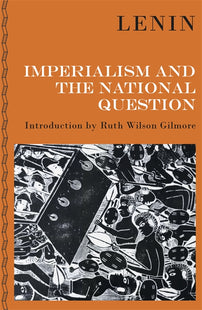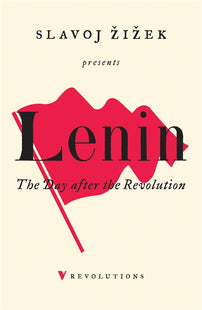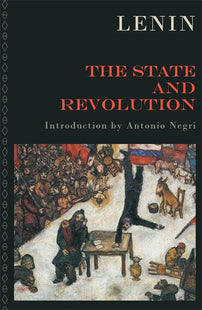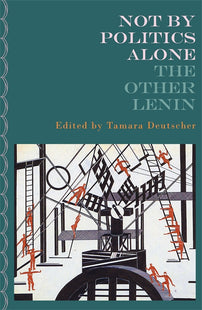The Novel of Lenin: Chapter Six
The sixth installment of our nine-part series: The Novel of Lenin by Joseph Andras: The Revolution is Slow to Arrive, Jaurès is Killed, The Great War Arrives.

1907-1914:
The Revolution is Slow to Arrive, Jaurès is Killed, The Great War Arrives
We follow Lenin’s trace through London, Brussels, Geneva, Paris, and Prague. He stays the course: bring about a revolution, a victorious one. Yet it is the hour of the great war. Jean Jaurès is assasinated.
We are in 1907. The Mensheviks estimate that the relative opening proposed by the regime is an opportunity to be seized. At present, an institutional breach has opened: they need to dive in. Trotsky doesn’t share their view and admits that the Bolsheviks are growing bolder. Lenin is hunted, exhausted, nervous; he will seek rest for a while in Sweden. His companion describes him as cut off from the world. The Bolsheviks again decide to boycott the upcoming elections and, again, Lenin, in the minority, opposes the move. Sailors mutiny on the Russian island of Kronstadt; they are immediately put down.
While passing through London, Lenin works on Materialism and Empiriocriticism, a work, this time, of political philosophy. We follow his trace to Brussels, to Geneva, to Paris. His days in the French capital displease him. Nadezhda Krupskaya will write that “Ilyich always looked back upon them with a heavy feeling.” The work in question appears in May 1909 and Plekhanov sneers at it. In Russia, the Social Democratic Labor Party is in a sorry state. The Bolsheviks launch a new journal, to which Lenin contributes actively. Inessa Armand, militant Marxist feminist, daughter of an opera singer and an actor; the revolutionary, who speaks French (a “very pure French,” Marcel Cachin will say), can’t “take his Mongol eyes off of her.” Henceforth, she works at his side. Their union will remain hidden. At the end of 1910, Tolstoy dies – two years prior, Lenin had saluted his “merciless criticism of capitalist exploitation, exposure of government outrages, the farcical courts and the state administration” while reproaching him for remaining a “crackpot preaching of submission ‘resist not evil’ with violence.” Demonstrations explode against the background of new worker strikes. In June 1911, Lenin opens a school for cadres in Seine-et-Oise. Training is intense. He must take control of the party. The Menshevik Martov thunders against the Leninist sect, half anarchist, half Blanquiste; Rosa Luxemburg treats him as a fighting cock, a divider, a provocateur, and a secessionist.
At the beginning of 1912, Lenin organizes a conference in Prague. His goal? Resuscitate the party. In his eyes, the meeting is a success. But very quickly he is disenchanted by a lack of organization. His adversaries curse his efforts to corner the party, Trotsky tries to unify, and Lenin in turn curses Trotsky. He stays the course: bring about a revolution, a victorious one, and stop betting on some legalistic mutation. Foment in Russia continues. Lenin, Krupskaya, and two of their comrades settle not far from Kraków. They have just founded a new legal journal, Prava (The Truth). At the Russian border, Lenin is calmed. His country now counts more than 700,000 striking workers. The few Bolshevik deputies in the Duma call for a strike but are immediately renounced by their Menshevik colleagues. Stalin, editor-in-chief of Prava, censors Lenin’s most incisive writings. In his correspondence, Lenin will call him a “pitiful coward.” The imperial power forbids publication.
Penniless, freshly separated from Inessa Armand, isolated from the Second International, and at the bedside of his suffering wife, our man is weary. The summer of 1914 arrives, and with it, a new strike in Saint-Petersburg. Could this be the advent of revolution? No, for the moment only war. Franz Ferdinand of Austria is nothing more than a cadaver. Belgrade has just been bombarded. General conscription is decreed in Russia. Then in Austria-Hungary. Then in Belgium. On July 31st, Jaures is shot dining on the Rue Montmartre. A bullet in the brain. The socialist, we know, was against the war; the voice of peace seems to founder alongside him. “Politically, I had been far removed from him. But one could not help feeling the pull of his powerful personality,” Trotsky writes in My Life. Two months later, Lenin moves to Bern.
This text was originally published by L’Humanité in a special edition commemorating the centenary of Lenin’s death. Translated from the French by Patrick Lyons.
Chapter Five: 1904-1907: The Insurrection Begins, The Role of the Soviet, Repression
[book-strip index="1"]





